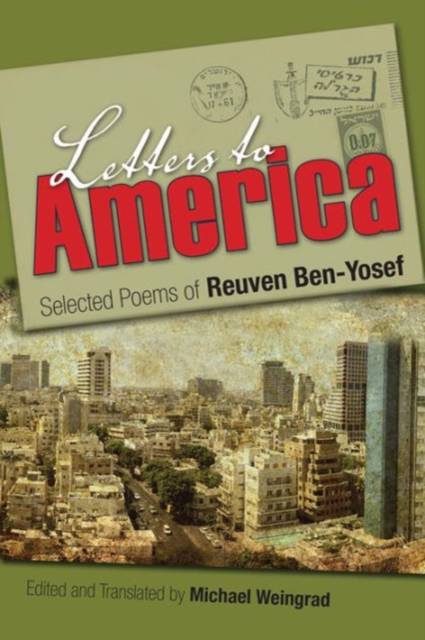
- Afhalen na 1 uur in een winkel met voorraad
- Gratis thuislevering in België vanaf € 30
- Ruim aanbod met 7 miljoen producten
- Afhalen na 1 uur in een winkel met voorraad
- Gratis thuislevering in België vanaf € 30
- Ruim aanbod met 7 miljoen producten
Letters to America
Selected Poems of Reuven Ben-Yosef
Omschrijving
Reuven Ben-Yosef (1937-2001) was born Robert Eliot Reiss to an assimilated Jewish family in New York. He switched from writing English poetry to Hebrew poetry after his immigration to Israel in 1959. He is the author of more than a dozen volumes of superb Hebrew poetry, as well as two collections of essays and two novels, and he won literary honors such as the Levi Eshkol Prize, the Bar-Ilan University Prize, and the Neuman and Kovner prizes for Hebrew literature. At the center of his oeuvre is the sequence of poems he wrote in the 1970s called "Mikhtavim la'Amerikah" (Letters to America), a searing and confessional set of addresses in the form of "letters" to his family members (none of whom, however, could read Hebrew) and to American Jewry as a whole.
In this edited volume, Weingrad includes not only these expertly translated poems but also an extensive, fascinating introduction that helps us see Ben-Yosef's personal poetry as part of a larger family story. While Ben-Yosef was writing about his American family members, they were writing about him. Ben- Yosef's younger brother, poet James Reiss, began publishing highly praised collections of poems in the 1970s and addressed conflicts with his brother in a number of poems. Ben-Yosef's brother-in-law, novelist William Luvaas, published a first novel that was clearly based upon the Reiss family. Ben-Yosef's letters to America are therefore joined by his family members' "letters" to Israel, through which the Reiss family collectively created its own literature of the American-Israeli relationship in miniature, the conflicts and rifts, rivalries and loyalties of family members and competing homelands. This essential introduction, which also describes Ben-Yosef's early life as an American and the challenges of becoming an Israeli poet writing in Hebrew, enriches our understanding of the deeply personal poems collected in the rest of the volume. Weingrad compellingly argues that Ben-Yosef's poems, though seemingly local in their explicit Israeli audience and address, implicitly speak to Jews in America about assimilation, heritage, and the struggle between competing identities.Specificaties
Betrokkenen
- Vertaler(s):
- Uitgeverij:
Inhoud
- Aantal bladzijden:
- 200
- Taal:
- Engels
- Reeks:
Eigenschappen
- Productcode (EAN):
- 9780815633983
- Verschijningsdatum:
- 29/05/2015
- Uitvoering:
- Paperback
- Formaat:
- Trade paperback (VS)
- Afmetingen:
- 151 mm x 231 mm
- Gewicht:
- 285 g

Alleen bij Standaard Boekhandel
Beoordelingen
We publiceren alleen reviews die voldoen aan de voorwaarden voor reviews. Bekijk onze voorwaarden voor reviews.










